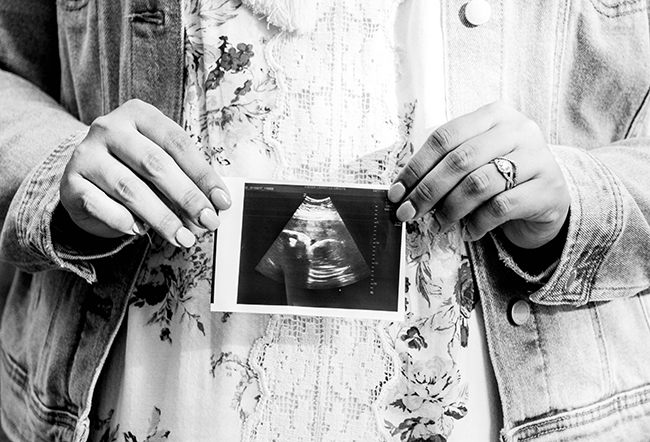AIt is a common misconception to believe that your baby grows in the womb in a neutral state of unconsciousness. Today, because of technology, you can now see your baby as he interacts with his inner and outer world.
Mothers have long recognized that their baby is learning and actively responding, both to his environment within the womb, and the imposition of social stimulation and input from the world at large. In fact, from four months on in utero, your baby is both learning your language, recognizing and responding to your voice, while hearing all the body systems – such as the sound of your heart beating, your blood rushing, and various internal processes such as gas, hiccups, etc. Your baby hears all of this through the muffled echo of your body and vocal cords.
Further, ambient sounds from your social environment also reach your baby through music, singing, conversation, reading and loud noises. Your baby also reacts to light and shadow, reflected from the outside – for example, when your OBGYN examines you, and shines a light into your uterus.
Moreover, if you are happy, dancing and laughing, your baby will respond in kind by jumping up and down in the womb, kicking and moving around, especially responding to your rhythm, beat, and joyful attitude.
Additionally, your baby will reach for things that invade his space, such as the amniocentesis needle that perforates the uterus in an effort to extract amnio fluid from the placenta. Your baby also demonstrates a range of emotions including anger.
If twins are growing together, they interact expressing joy and love as well as frustration and aggression. For instance, twins will move their placentas together so that they touch one another through the thin membrane separating them.
Your baby is especially responsive to your voice. At 4 months on, he begins to learn your language. He hears the meter and rhythm of that language through the muffled sound of the womb. Thus, by the seventh month, your baby is so attached to your voice, that if you speak to him in a calm and soothing way, you can affect his mood.
There have been many studies to corroborate your baby’s connection to your voice, in particular. In one such study, babies were given pacifiers attached to a voice recorder. When a baby heard his mother’s voice, as opposed to any other female voice, he reacted by increasing his sucking on the pacifier. Ultimately, the baby even adapted his sucking rate to the rhythm of his mother’s voice, in an effort to manipulate the distinct voice of his mother, as opposed to the voices of any other.
This work by William Fifer, Ph.D. at Columbia University, demonstrates not only your baby’s attachment to your voice, but also, the capacity of your baby to learn and adapt rapidly. (source: Laura Flynn Mccarthy, What Babies Learn in the Womb).
On the other hand, babies do not connect to their fathers, siblings or other voices, in the same way. So, although your baby may have heard the voices of his father, siblings, and others through the womb – perhaps by reading bedtimes stories and singing lullabies – he still has a unique and special attachment to your voice. Of course, it is your voice specifically that is heard for nine months, as it resonates through your abdomen and vocal cords, bonding with baby.
In my next blog post, I’ll explore your baby’s world in utero further.


